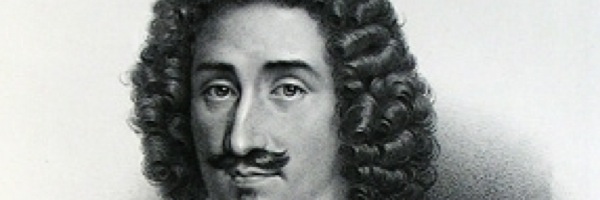Jean-Louis Guez de Balzac, Paris, 1656 (Google Books)
In September 1665, Lister read this work, a series of letters exchanged between two members of the Académie Française, Balzac and Chapelain. Although most of the exchanges were witty and urbane in a cultured and persuasive French, there were some scurrilous epistolary conversations as well.
Charlotte des Ursins, vicomtesse d’Auchy, kept a literary salon in Paris which ‘handled the overflow’ from the poet Malherbe’s nearby academy, where there were only seven or eight chairs. 1 Her gatherings ‘inspired a violent outpourings of misogyny’ in the letters between Chapelain and Balzac, with Chapelain vehemently denying he was a member of the vicomtesse’s ‘feminine academy’. 2 As for Balzac, he noted, ‘A long time ago I declared myself against the pedantry of the other sex and I said that I’d more gladly suffer a bearded woman than one who plays the learned lady’, and then called educated women ‘learned transvestites’.
Ironically, because of Balzac’s brevity and style, his correspondence became ‘an ideal of intelligent discourse directed toward a cultivated though not necessarily learned readership (which included women)’. 3
Lister would later donate a copy of the Elzevir edition to Oxford.
- Erica Harth, Cartesian Women: Versions and Subversions of Rational Discourse in the Old Regime (Ithaca: Cornell University Press, 1992), 29. ↩
- Harth, Cartesian Women, 29. ↩
- Pamela Park, ‘Balzac, Jean-Louis Guez de’, Encyclopedia of the Essay, ed. Tracy Chevalier (Chicago: Fitzroy Dearborn, 1997), 55. ↩

